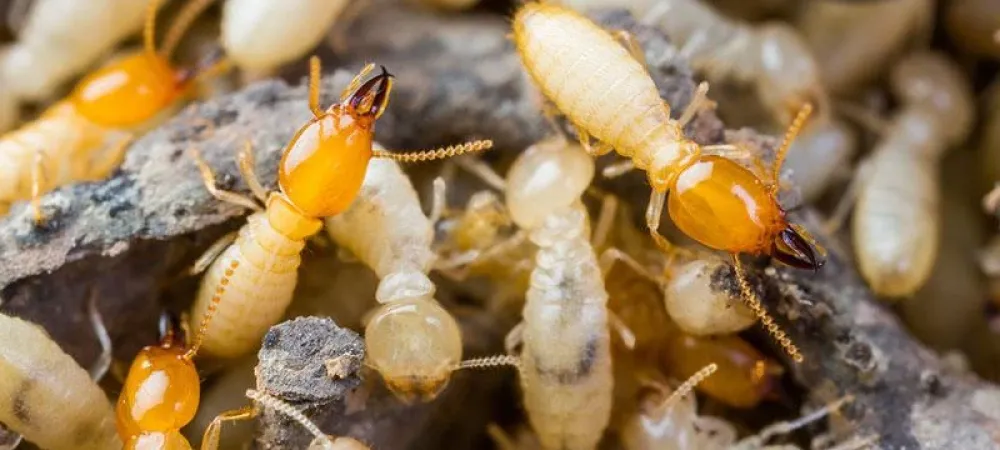When Do Termites Swarm?

As a homeowner, it is essential to protect your investment from termites. These insects cause extensive damage to homes. In the right conditions, termites can destroy property in a very short time. So, it is vital to educate yourself about these pests.
Different Kinds of Termites
There are a few kinds of termites that Roseland, NJ residents might see. Subterranean termites are the type that is native to the state. However, drywood termites can also make their way into your home on wood furniture imported from other parts of the country. They are not as common, though.
There are two kinds of subterranean termites common in the state, the eastern subterranean termite and the dark southeastern subterranean termite. A termite inspection by a licensed pest company is the best way to determine the type.
What is a Swarmer Termite?
There are five different termites in a termite colony; king, queen, soldier, worker, and swarmer. The sole role of a swarmer is to create new colonies through reproduction; they typically do this once per year and in the spring.
Swarmers are easy to identify because they are the only flying termites and have wings. You might find them around your yard or even in your home, and the location you find them might give an indication of the type of infestation you have.
What Happens When Termites Swarm?
When termites swarm, they reproduce very quickly, and they can spread to other areas. It is important to note that just killing the swarming termites will not remedy the problem. However, if you see swarming activity, it is an indication that you have a problem.
It also means that the problem is getting worse. So, if you see swarming activity, it is imperative that you contact a professional to perform the appropriate termite treatment.
Eastern Subterranean Termites
Eastern subterranean termites are hazardous to your home. They cause extensive damage by weakening wood elements, including the frame. These termites typically swarm from the beginning to the end of spring.
They need the right conditions, though. So, they are most likely to start this activity after rain and when the weather starts to get warmer after winter. They are also very common when Dogwood trees begin blooming.
Dark Southeastern Subterranean Termites
Dark southeastern subterranean termites are also common in the area. These insects are similar to the eastern subterranean termites; they live underground and build mud tunnels to access wood, which is their food source. However, they have a bigger window in which they swarm.
The dark subterranean termite swarms from early spring to mid-summer, they prefer the warmer weather and can swarm during the day. At times you might not notice them swarming. However, if you find wings around wood in your home, that is likely what is going on.
Indoor Swarms
At times, termites swarm indoors, and indoor swarms can occur at different times, including during the winter. When you heat your home, if these pests are in the interior of your house, they might start to reproduce.
Seeing swarming activity indoors is very concerning. It can be an indication that the insects are present in large numbers and you have an infestation deep within the interior of your home.
Termites Swarm When There Is Already A Significant Colony
Termites begin to create other colonies through swarming after the initial population has grown significantly in size. When swarming occurs, you likely have had a problem for two years or more, and there could be millions of termites at this point.
What You Should Do If You See Termite Swarming
Regardless of when you see termite swarms, you need professional help. The longer you wait, the more damage the termites will cause. So, it is essential to contact a professional company to conduct an in-depth termite inspection and perform a treatment like the state-of-the-art TermaPlus preventative pest program to protect your investment.
